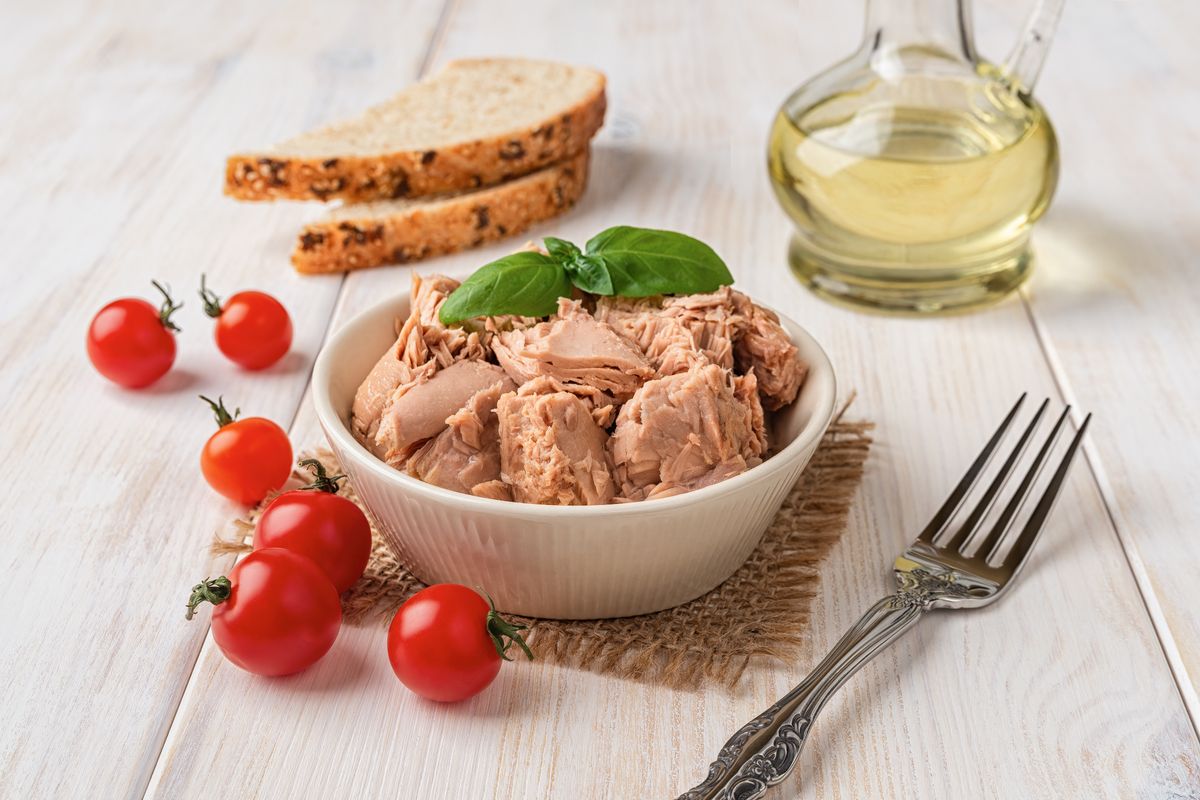When it comes to convenient and protein-rich food sources, canned tuna undeniably claims the top spot. Whether you're whipping up a speedy tuna salad, crafting a delectable sandwich, or preparing a tantalizing casserole, having a can of tuna in your pantry is an absolute must. However, it's crucial to recognize that not all canned tuna products found on the market are created equal. In fact, certain leading brands of canned tuna outshine the competition by offering superior nutritional value and sustainable practices.
To navigate this vast ocean of choices, esteemed dietitians and nutrition experts generously shared their wisdom. Armed with their insights, we will steer you towards options that deliver unparalleled taste, exceptional quality, responsible sourcing, and impressive nutritional benefits. Moreover, we'll ensure you are aware of the canned tuna varieties that may fall short of meeting our rigorous standards. Get ready to embark on an enlightening journey that will empower you to make informed choices and elevate your tuna game to new heights.
Exploring the Distinctions between White Tuna and Light Tuna
Within the realm of canned tuna, the terms "white" and "light" denote distinct tuna species. White tuna, also known as albacore tuna, represents a larger variety that boasts a milder flavor and a firm, flaky texture. Sporting a lighter hue and higher fat content, white tuna exudes a luxurious, buttery taste. It is frequently employed in dishes where a heartier texture is desired, such as succulent tuna steaks or refreshing salads.
Conversely, light tuna encompasses smaller tuna breeds like skipjack and yellowfin tuna. Darker in color, light tuna possesses a more pronounced and robust flavor compared to its white counterpart. With a softer texture, light tuna tends to be more affordable. It finds popularity in sandwiches, casseroles, and recipes that crave an assertive tuna taste.
Both white and light tuna offer commendable nutritional advantages, serving as excellent sources of lean protein, omega-3 fatty acids, and an array of vital vitamins and minerals. The selection between white and light tuna ultimately hinges on personal preferences, the intended culinary applications, and budget considerations.
Oil-Packed vs. Water-Packed Tuna
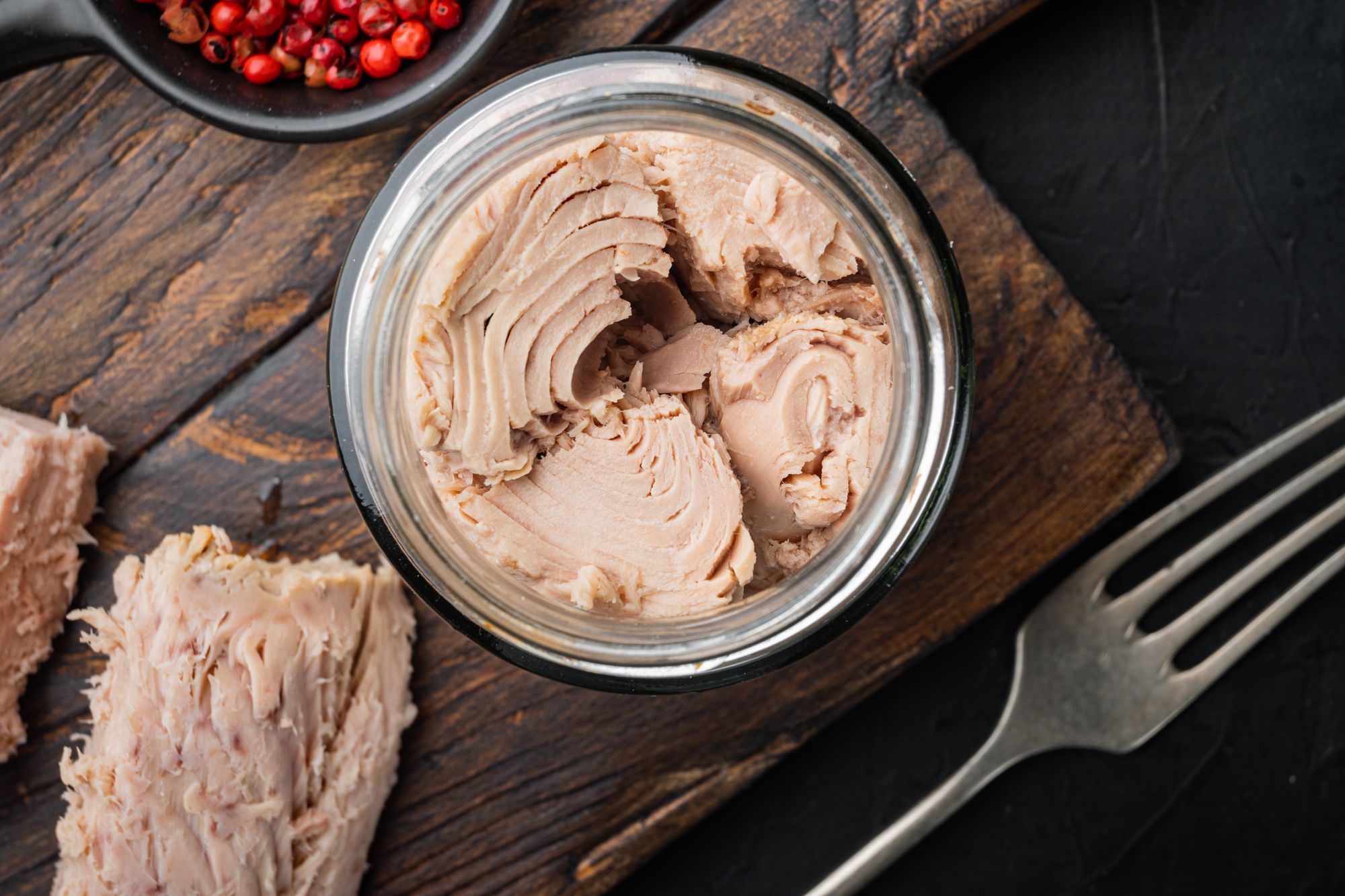
Oil-packed tuna, as the name implies, undergoes canning with the inclusion of oil, typically vegetable or olive oil. This preservation method ensures the tuna retains its flavor and texture, resulting in a moist and indulgent product. Importantly, fat-soluble vitamins and the nutritional value of the tuna are preserved. The added oil enhances the taste and imparts a delightful richness to the fish. However, it's worth noting that oil-packed tuna tends to have a higher calorie content due to the presence of oil.
On the other hand, water-packed tuna is canned in water, often with a small amount of salt or broth for added flavor. This approach yields a lighter and more natural taste, allowing the tuna's distinct flavor to shine through. Water-packed tuna is often favored by individuals who are conscious of their calorie or fat intake, as it generally contains fewer calories and less fat compared to its oil-packed counterpart.
When faced with the choice between oil-packed and water-packed tuna, consider your personal preferences concerning taste, texture, and dietary requirements. Oil-packed tuna may be ideal for recipes that benefit from the richness of the oil, such as pasta dishes or salads. On the other hand, water-packed tuna can serve as a healthier option for those seeking to reduce their fat intake or savor a straightforward, unadulterated tuna flavor.
Navigating Mercury Levels in Tuna: A Matter of Awareness
Remaining vigilant about the presence of mercury in seafood, especially during pregnancy, is of utmost importance. Excessive consumption of mercury-rich foods can have detrimental effects on the nervous system, particularly impacting the developing brains of infants and young children.
Pregnant women, nursing mothers, and young children are advised to exercise caution when it comes to consuming fish with high mercury content. Different tuna species exhibit varying levels of mercury. Typically, larger and longer-lived tuna species tend to accumulate higher amounts of mercury in their tissues.
The following tuna varieties are more prone to containing elevated levels of mercury:
- Bigeye tuna: This large tuna species may harbor higher mercury levels compared to others.
- Bluefin tuna: Due to its long lifespan and its position as a top predator, bluefin tuna is more likely to contain higher mercury levels.
- Albacore tuna: Also known as white tuna, albacore tuna generally exhibits higher mercury levels compared to skipjack or yellowfin tuna.
It is crucial to note that the nutritional benefits of consuming fish, such as omega-3 fatty acids, iodine, and protein, should also be taken into consideration. Striking a balance between potential mercury risks and the nutritional advantages of fish is key.
In summary, individuals who are pregnant or breastfeeding are generally advised to consume fish in moderation. The FDA recommends that breastfeeding mothers and expectant mothers consume 8 to 12 ounces of lower-mercury fish per week.
Unveiling Sustainable Tuna Catching Practices
The manner in which tuna is caught plays a significant role in ensuring sustainable practices. Two highly sustainable methods are pole and line fishing and trolling, both designed to minimize the unintentional capture of other species.
Pole and line fishing is precisely what the name suggests: a single individual fishing with a pole. This method allows for a targeted approach, reducing the risk of bycatch. Trolling, on the other hand, involves the use of a boat equipped with multiple poles. By carefully managing the lines, trolling further minimizes the incidental capture of non-targeted species.
It is advisable to steer clear of the general term "line caught," as it may encompass other methods that sound safe but lack sustainability, such as long line fishing.
Choosing the Finest Canned Tuna: Your Guide to Selection
- Tuna Species: Each tuna variety offers unique characteristics in terms of taste, texture, and nutritional value. Decide whether you prefer the mild flavor of white albacore tuna or the bold taste of yellowfin or skipjack tunas.
- Oil vs. Water: Consider your recipe, taste preferences, and dietary needs when selecting between oil-packed and water-packed tuna. Oil-packed tuna provides richness and flavor, while water-packed tuna offers a lighter taste.
- Sustainability: Prioritize brands that prioritize sustainable fishing practices. Look for certifications such as MSC (Marine Stewardship Council) or Dolphin-Safe labels, indicating environmentally-friendly sourcing. Be cautious of vague terms like "line caught" and instead opt for "pole-caught" or "trolling" methods.
- Quality: Choose brands that emphasize their commitment to sustainability and environmental consciousness. Check the "best by" date on the packaging to ensure freshness. Avoid dented or swollen cans, as they may indicate food safety issues. Look for BPA-free canning to prioritize health and safety.
- Nutrition Facts: Examine the nutrition label to evaluate protein content, omega-3 fatty acids, and sodium levels. Consider your dietary requirements and preferences when comparing different brands.
Discover the Most Nourishing Canned Tuna Options
1) Wild Planet Albacore Wild Tuna
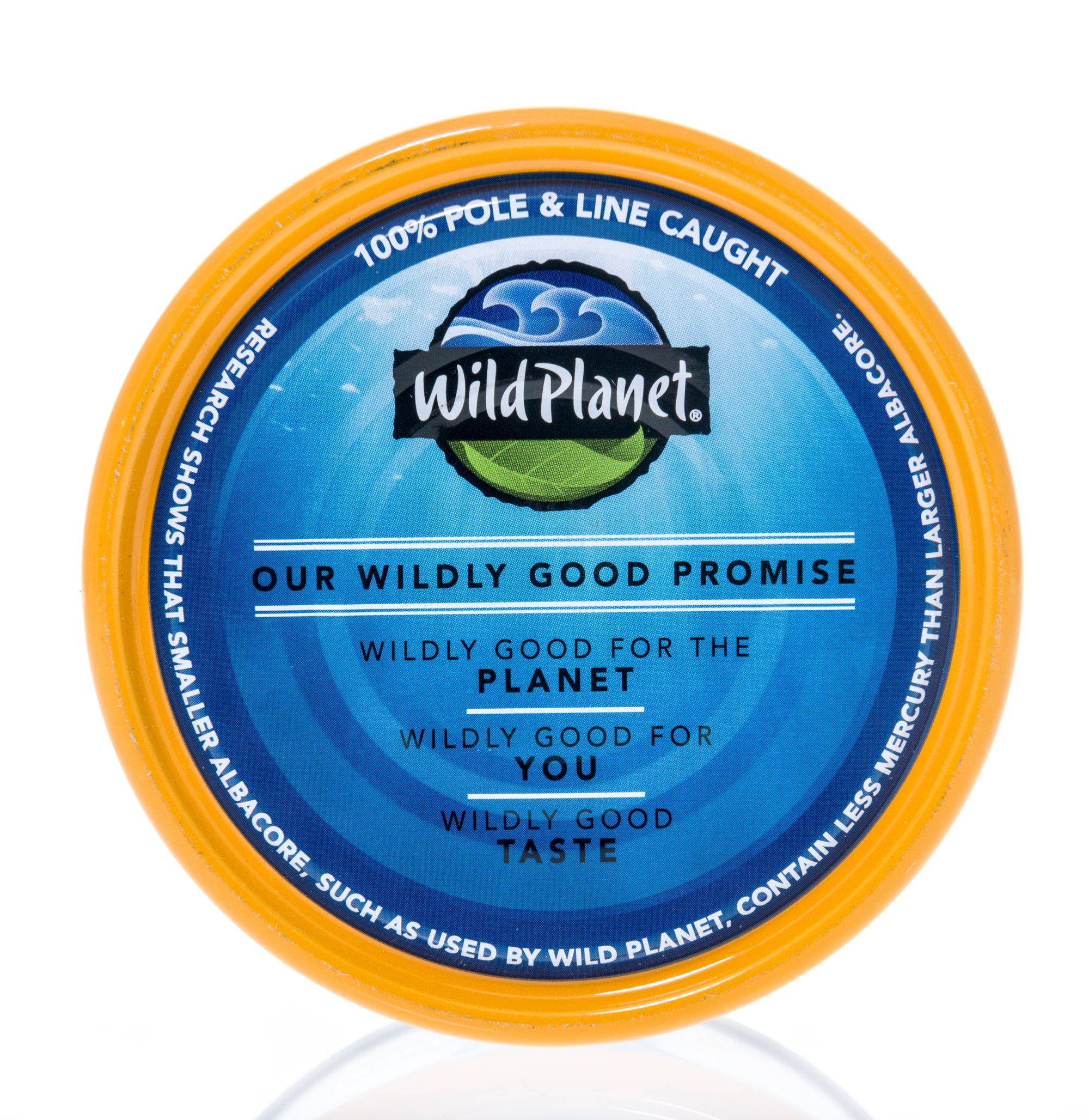
PER 3-OUNCE SERVING: 110 calories, 2.5 g fat (1 g saturated fat), 200 mg sodium, 0 g carbs (0 g fiber, 0 g sugar), 21 g protein
Renowned dietitians Kelsey Kunik, RDN, and Lauren Harris-Pincus, MS, RDN, speak highly of Wild Planet tuna for its exceptional qualities. Kelsey Kunik highlights that Wild Planet tuna not only boasts a delightful taste but also maintains lower mercury levels compared to other brands. This is attributed to their sustainable fishing practices, such as pole and line fishing, and their careful selection of specific tuna species and sizes.
Meanwhile, Lauren Harris-Pincus applauds the nutritional value found in a can of Wild Planet tuna. She emphasizes that their Albacore Tuna is hand-packed without the addition of water, oil, or fillers. The tuna is cooked within the can, ensuring that the omega-3 fatty acids are retained. Each serving contains an impressive average of 705 milligrams of EPA/DHA omega-3s, which are vital for health. The liquid observed upon opening the can represents the omega-3s, eliminating the need for draining.
2) American Tuna
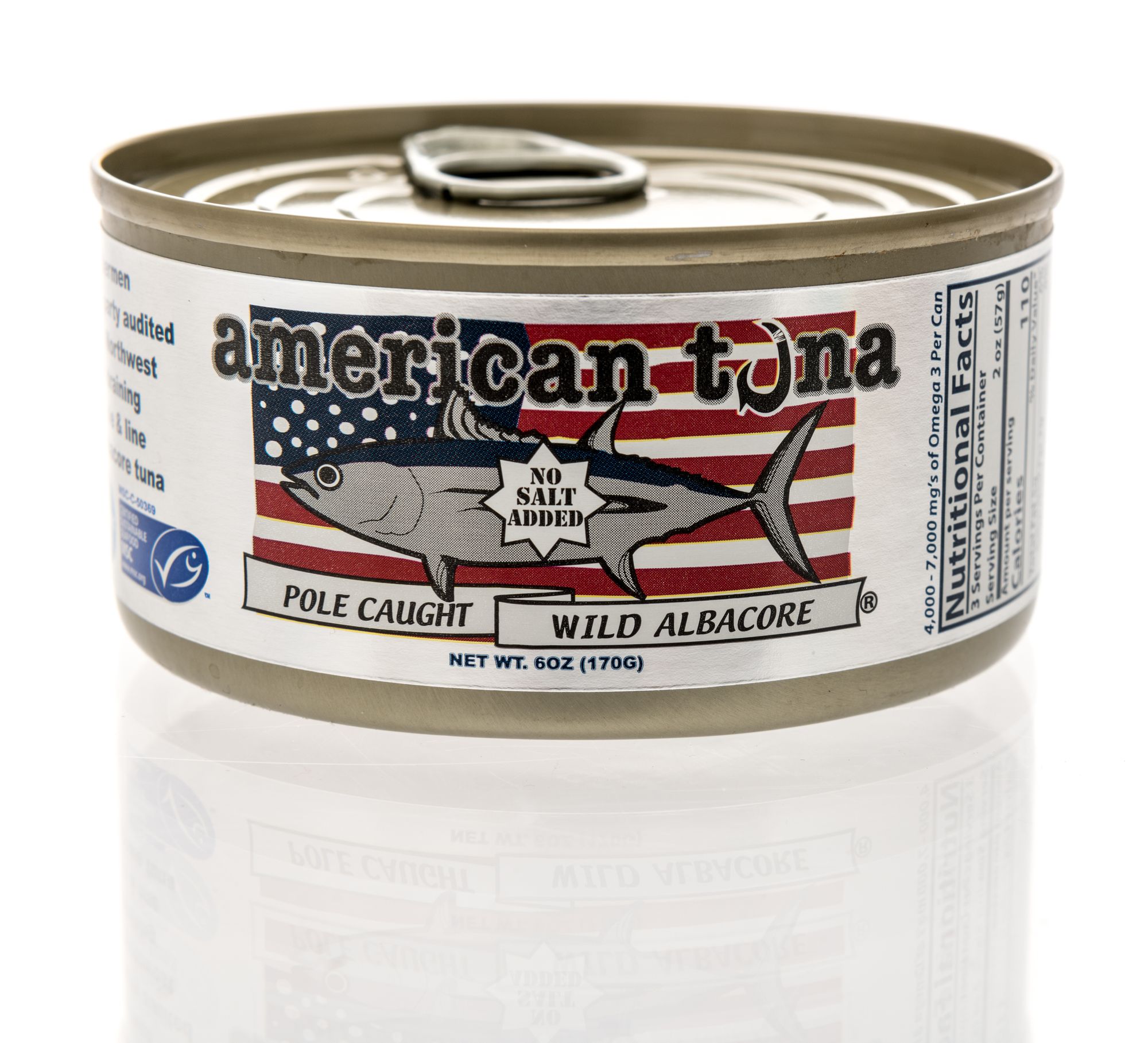
PER 2-OUNCE SERVING: 100 calories, 4 g fat (1 g saturated fat), 25 mg sodium, 0 g carbs (0 g fiber, 0 g sugar), 16 g protein
American Tuna has gained widespread acclaim for its unwavering dedication to ocean conservation and their use of pole and line fishing methods. The brand has earned commendable ratings from Greenpeace, solidifying their commitment to sustainable practices. Transparency is a priority for American Tuna, as they maintain a traceability system that ensures full visibility from the sea to the can. It's worth noting that the brand's roots can be traced back to a collaboration among six pole and line fishing families.
Beyond their sustainability efforts, American Tuna stands out with their diverse range of flavors. From the enticing brick-smoked variety to the zesty jalapeño option, they cater to a wide array of culinary preferences. Moreover, the brand takes immense pride in their superior nutritional profile. Among other tuna brands, American Tuna reigns supreme with the highest omega-3 content, delivering an extra dose of essential nutrients.
3) Safe Catch Elite Pure Wild Tuna
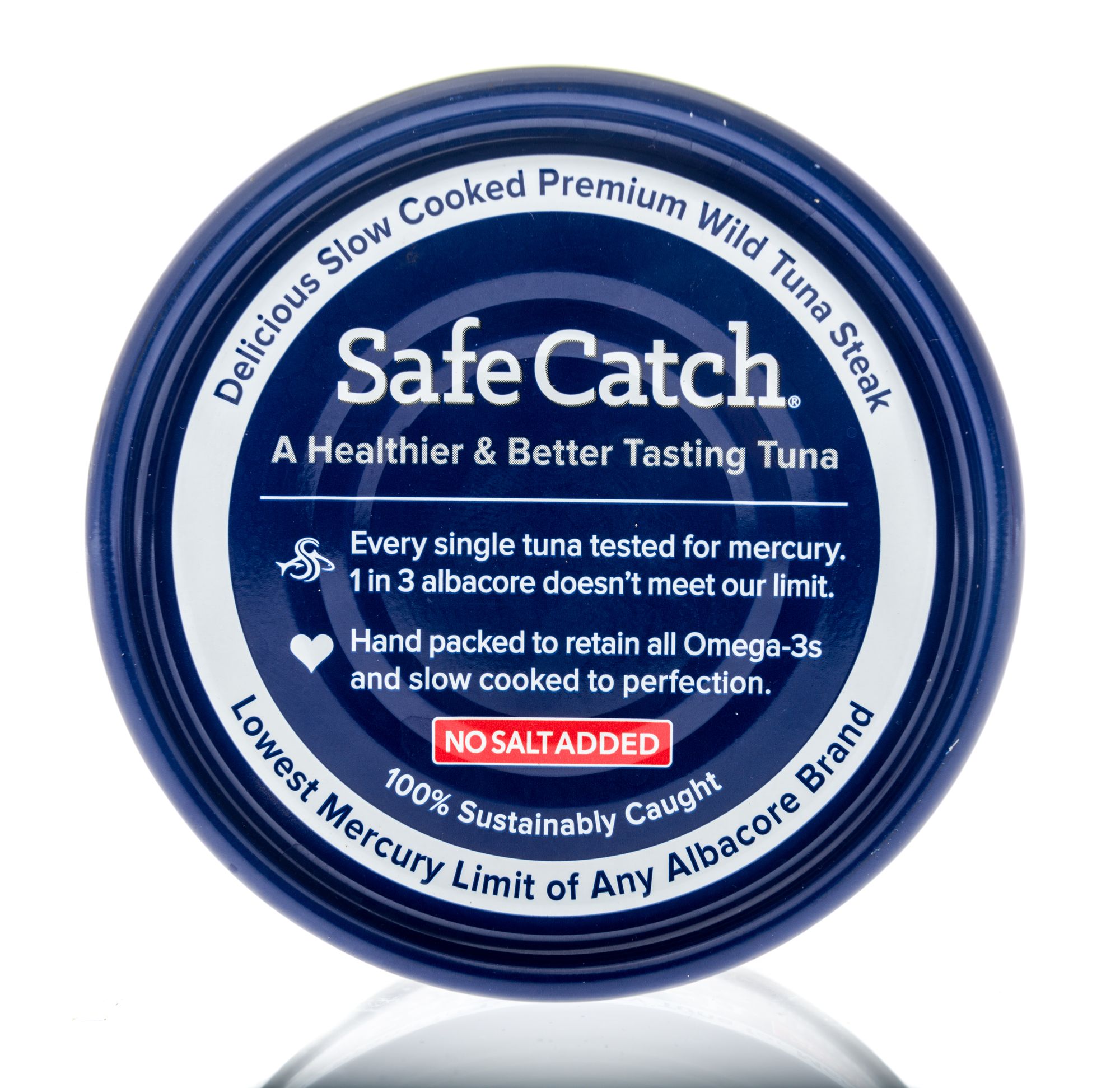
PER 3-OUNCE SERVING: 110 calories, 1 g fat (0 g saturated fat), 290 mg sodium, 0 g carbs (0 g fiber, 0 g sugar), 24 g protein
Renowned dietitian Lauren Manaker, MS, RDN, LD, commends Safe Catch Elite Wild Tuna for its rigorous testing process. Every tuna that is canned undergoes testing to ensure that the mercury content falls below the safety threshold established by the FDA. This commitment to safety makes Safe Catch Elite a reliable option for those seeking tuna with reduced mercury levels. Additionally, the brand's sustainable fishing practices align with environmental preservation goals, further enhancing its appeal. Notably, Safe Catch Elite is recognized as one of the official tunas of the American Pregnancy Association, indicating its suitability for expectant mothers.
As an avid fan of Safe Catch Tuna, Wan Na Chun, MPH, RD, shares her go-to method for enjoying this nutritious canned option. For a quick lunch or snack, she recommends combining Safe Catch Tuna with a dash of hot sauce and spreading it on toasted bread. This simple yet delicious combination provides a satisfying and protein-packed meal.
4) Ocean Naturals Skipjack Chunk Light Tuna in Water
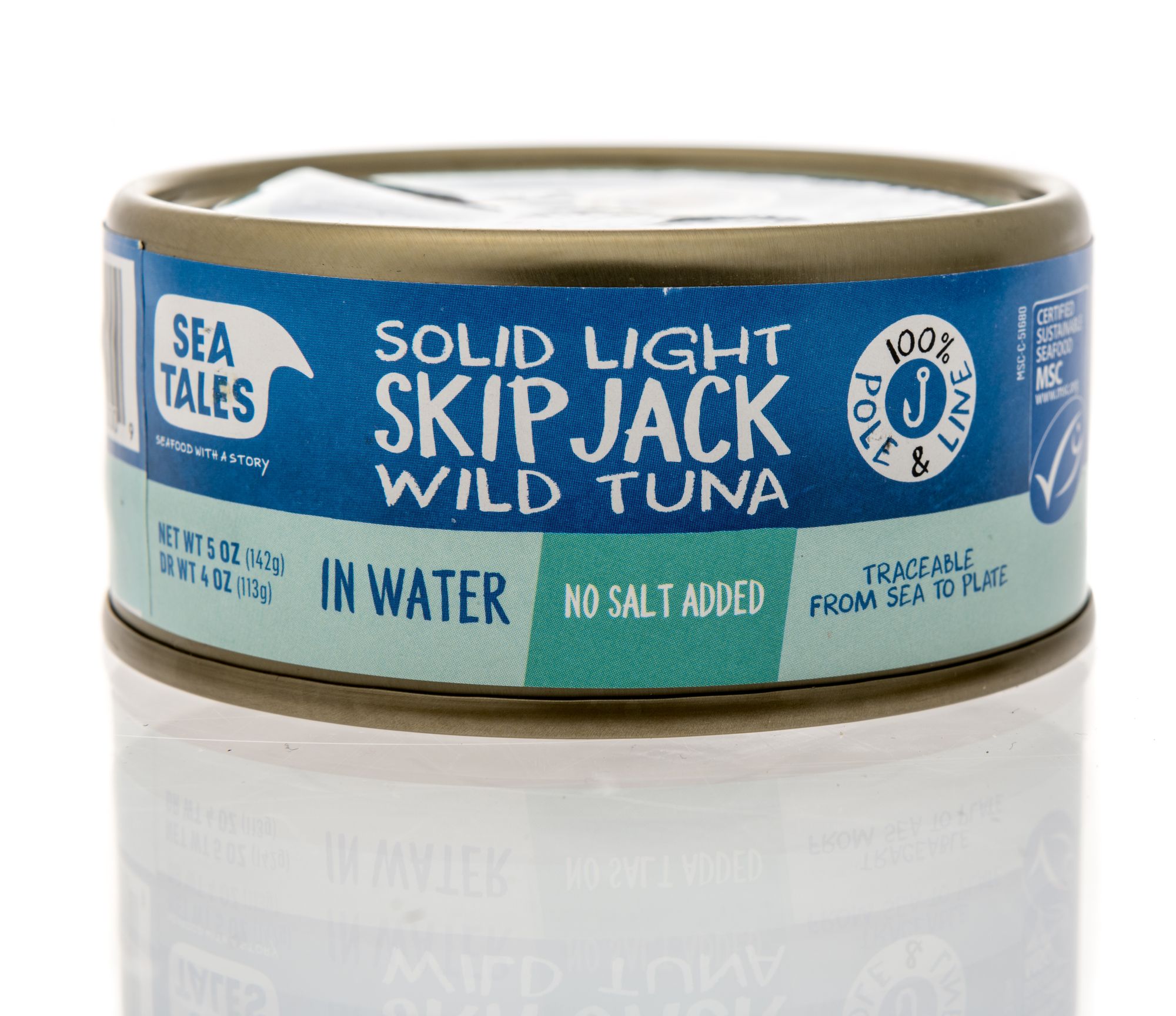
PER 2-OUNCE SERVING: 60 calories, 0.5 g fat (0 g saturated fat), 180 mg sodium, 0 g carbs (0 g fiber, 0 g sugar), 15 g protein
With a prestigious "green" label rating from Greenpeace, Ocean Naturals demonstrates a steadfast dedication to responsible fishing practices and unwavering transparency. The company sets an example by clearly specifying the fish species utilized in each product, ensuring consumers have a clear understanding of what they are purchasing. Furthermore, their commitment to minimal ingredients is evident, as their products typically consist of fish, salt, water, or olive oil—nothing more.
A standout offering from Ocean Naturals is their skipjack tuna, which impressively provides 230 milligrams of omega-3 fatty acids per serving. This nutritional boost contributes to a well-rounded and health-conscious diet. It's worth noting that their light meat tuna exclusively consists of 100% skipjack, avoiding the use of multiple species to protect those that are endangered. By prioritizing sustainability and preserving biodiversity, Ocean Naturals sets a high standard within the industry.
5) 365 Everyday Value Albacore Wild Tuna in Water
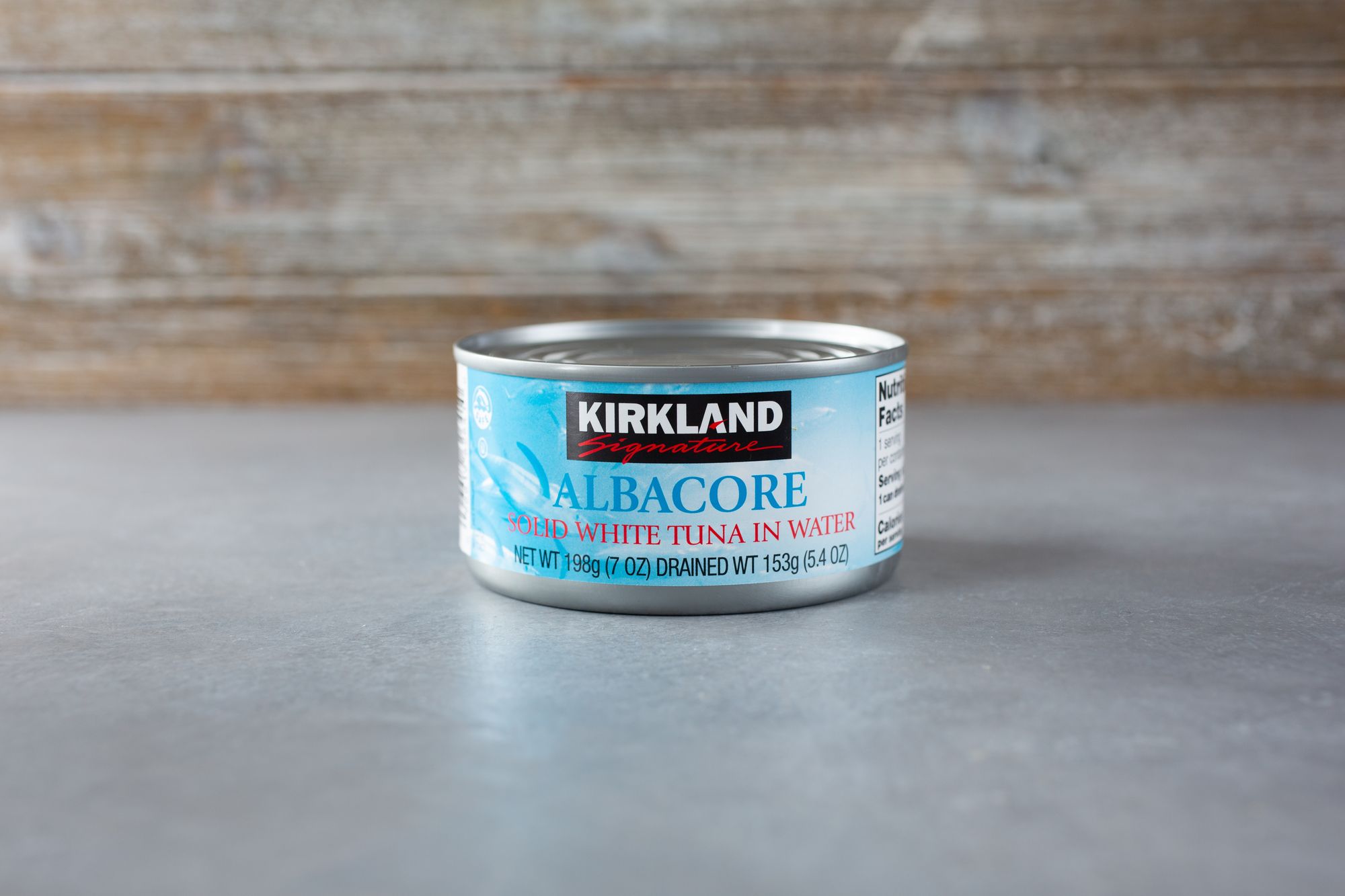
PER 4-OUNCE SERVING: 170 calories, 4 g fat (1.5 g saturated fat), 310 mg sodium, 1 g carbs (0 g fiber, 0 g sugar), 27 g protein
Whole Foods' private label sets an exemplary standard in responsible sourcing and prioritizes robust traceability measures. As a trailblazer in the industry, Whole Foods proudly stands as the first US retailer to make a steadfast pledge to exclusively offer 100% sustainable-canned tuna. This commitment ensures that customers can confidently make sustainable choices while enjoying the wide array of products.
One standout option from Whole Foods is their albacore tuna in water, which comes highly recommended. This choice is particularly ideal for individuals seeking a low-sodium option, as it provides a healthier alternative without compromising on flavor or quality.
6) Tonnino Tuna Filets in Spring Water
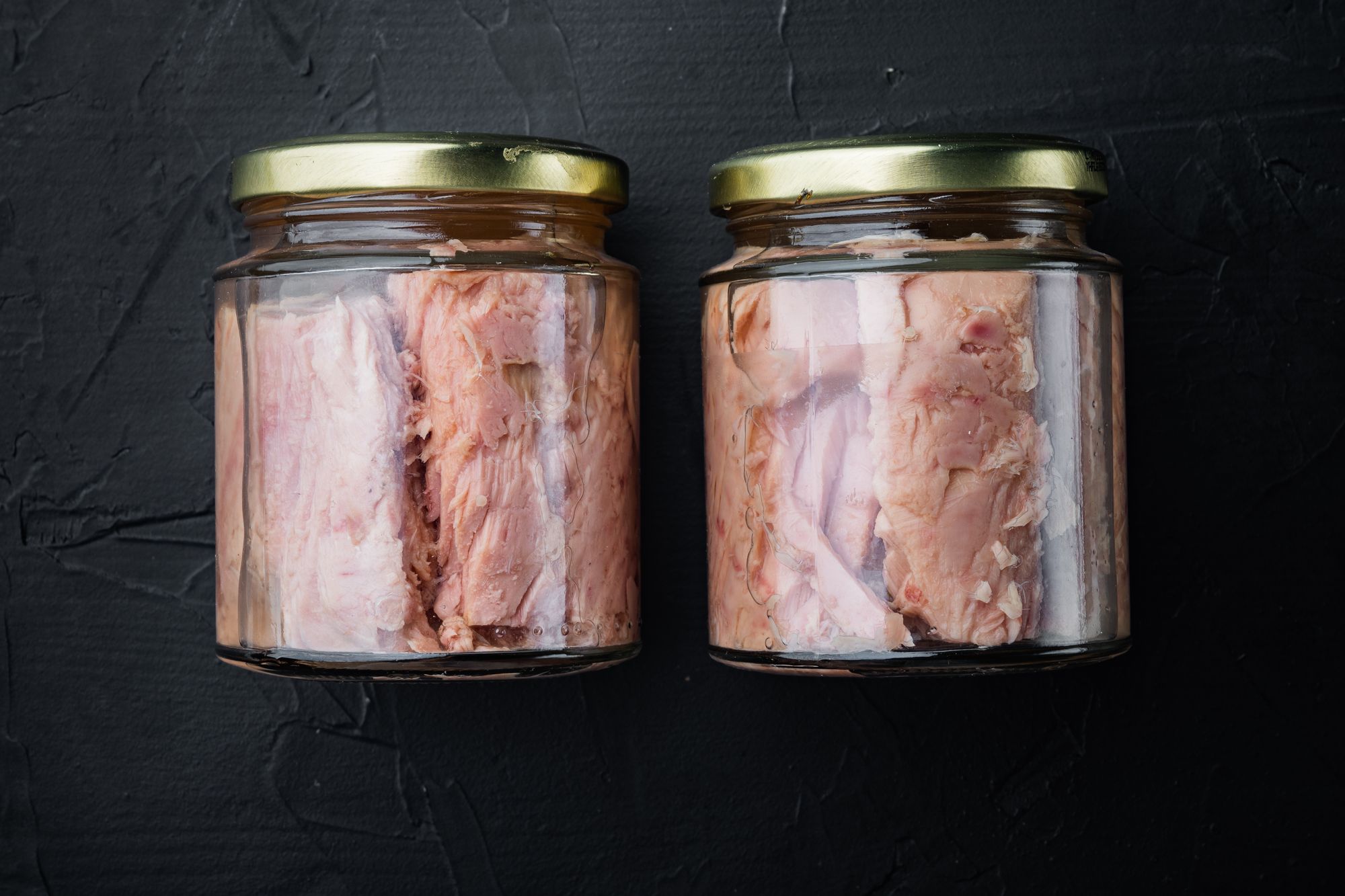
PER 2-OUNCE SERVING: 50 calories, 1 g fat (0 g saturated fat), 200 mg sodium, 0 g carbs (0 g fiber, 0 g sugar), 14 g protein
Tonnino Tuna, a premium gourmet brand originating from Costa Rica, offers an extraordinary alternative to conventional canned tuna. Delivered in exquisite glass jars, it presents a sophisticated and visually appealing packaging. Available in water or olive oil, Tonnino Tuna tantalizes taste buds with a range of delectable flavors, including options like garlic, capers, and jalapeño.
What sets Tonnino Tuna apart is its exclusive sourcing approach. The brand meticulously selects its tuna from vessels registered with CIATT, a conservation-focused group committed to preserving marine resources. On-board observers ensure that only tuna species are caught, reflecting Tonnino Tuna's unwavering dedication to responsible fishing practices and environmental stewardship.
7) Trader Joe's Chunk Light Skipjack Tuna
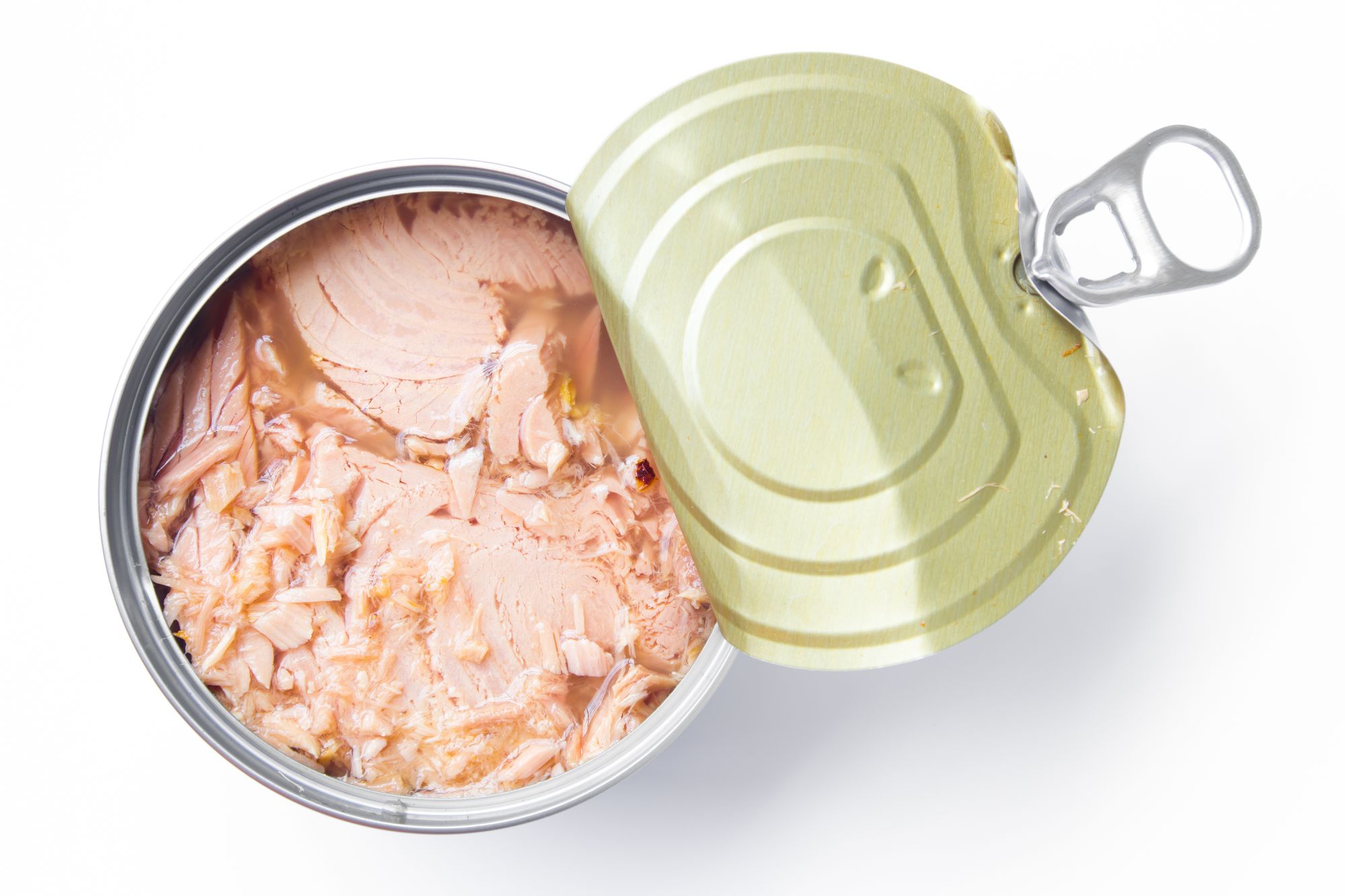
PER POUCH: 90 calories, 0.5 g fat (0 g saturated fat), 280 mg sodium, 0 g carbs (0 g fiber, 0 g sugar), 22 g protein
According to Kristin Draayer, MS, RDN, Trader Joe's Chunk Light Skipjack Tuna is the ultimate choice for those seeking an affordable and top-notch tuna option. This selection effortlessly blends into the perfect tuna salad, providing a delightful and versatile culinary experience. Not only does it offer exceptional taste, but it also maintains a healthy balance of omega-3 fatty acids—an essential component of a well-rounded diet. Importantly, this tuna option boasts low levels of mercury and arsenic, ensuring a safe and wholesome choice for consumers.
8) Blue Harbor Fish Co. Wild Albacore
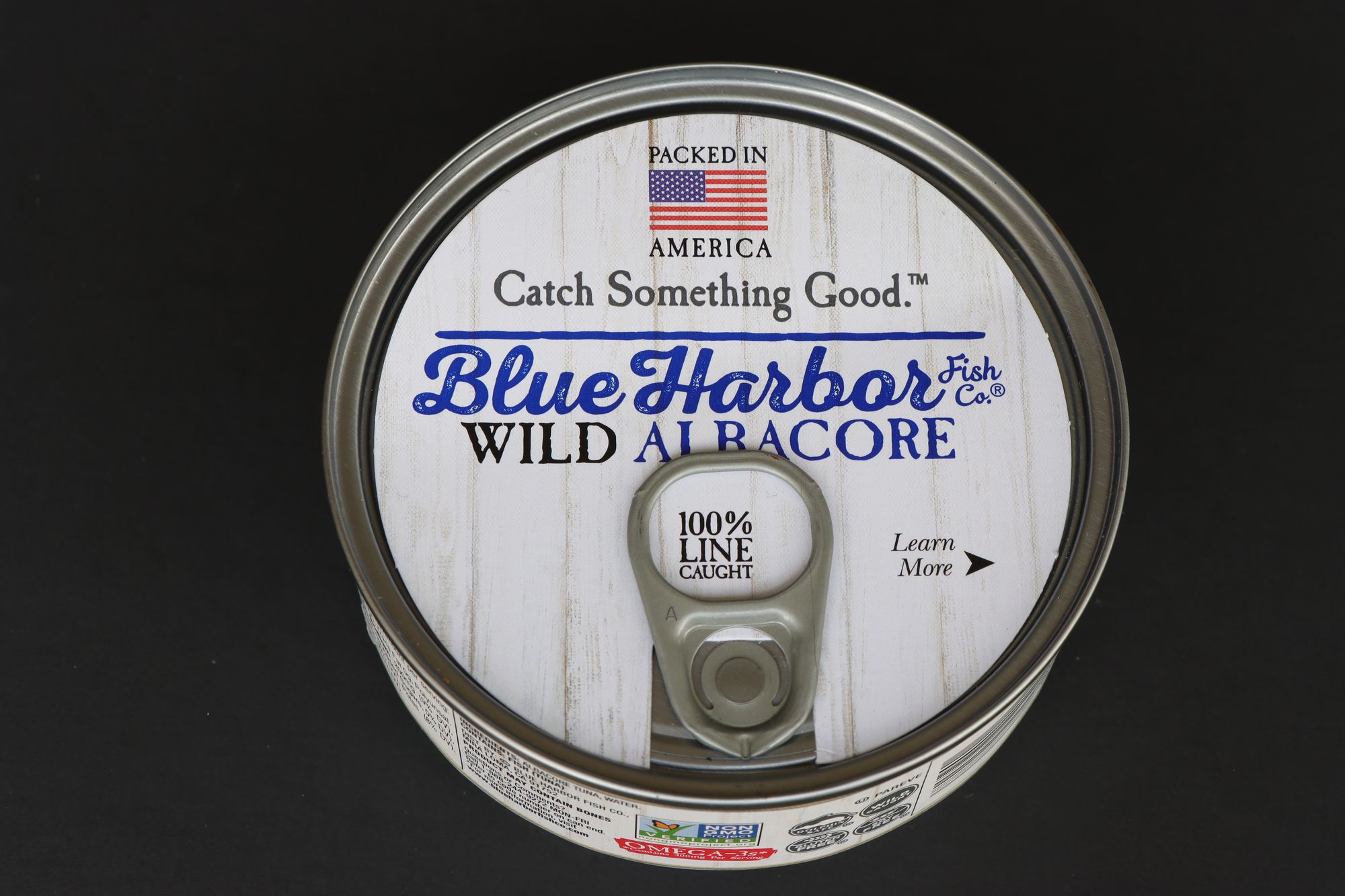
PER 4.6-OUNCE CAN: 150 calories, 2 g fat (0.5 g saturated fat), 360 mg sodium, 0 g carbs (0 g fiber, 0 g sugar), 32 g protein
Nicole Ibarra, RD, shares her admiration for Blue Harbor Fish Company's albacore tuna in water. This brand takes pride in their commitment to sustainable practices, ensuring that their tuna is sourced responsibly. Their preference for wild-caught tuna over farm-raised alternatives not only supports sustainability efforts but also offers the added benefit of higher omega-3 content. Additionally, Blue Harbor Fish Company's dedication to preserving the natural taste of their tuna is evident, as they refrain from adding any extra salt to their product.
9) Chicken of the Sea Chunk Light in Water
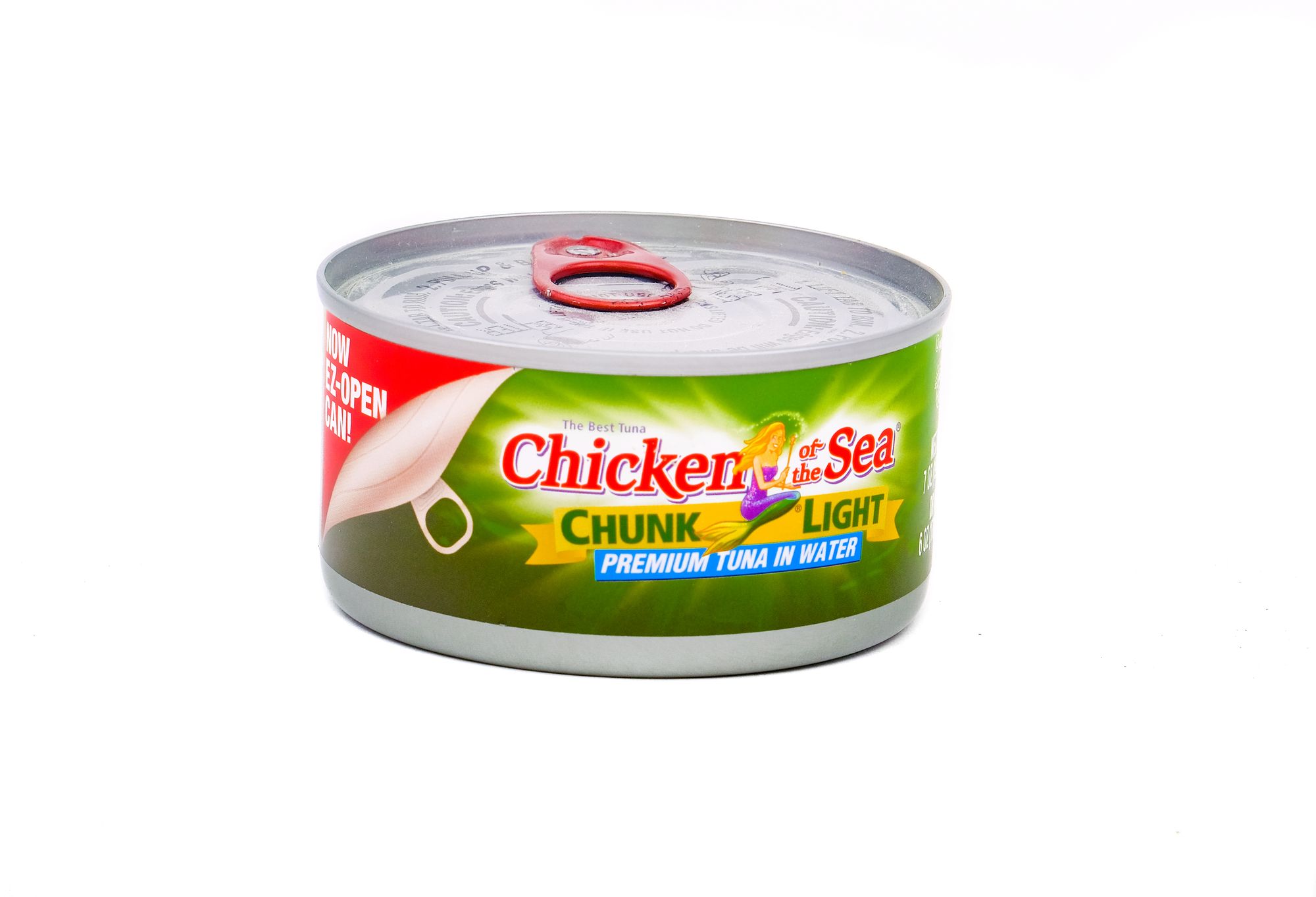
PER 5-OUNCE CAN: 100 calories, 0.5 g fat (0 g saturated fat), 320 mg sodium, 0 g carbs (0 g fiber, 0 g sugar), 23 g protein
Chicken of the Sea proudly showcases its sustainable fishing practices on its website, highlighting its certification by the Marine Stewardship Council. This certification underscores the brand's commitment to responsible fishing and environmental preservation. For those mindful of sodium intake, Chicken of the Sea also offers a lower sodium variant, catering to various dietary preferences.
Renowned dietitian Lisa Andrews, MEd, RD, LD, shares her appreciation for Chicken of the Sea, highlighting its commendable attributes. Andrews praises the brand for its responsible sourcing, affordability, and diverse product range. The availability of pouches is a particularly convenient aspect, eliminating the need for a can opener and making lunchtime hassle-free.
10) Scout Wild White Albacore Tuna
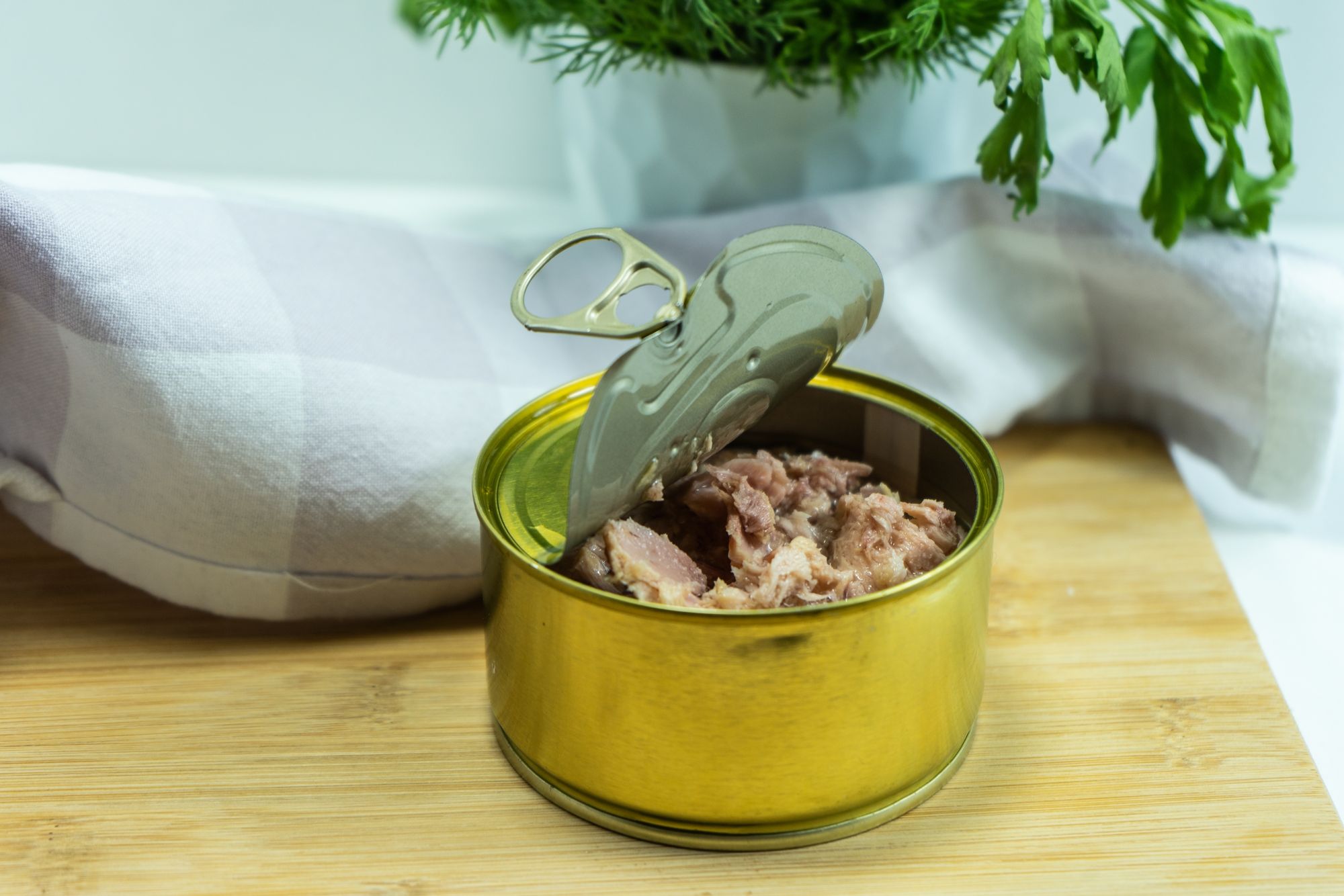
Scout offers premium, sustainable albacore tuna that is wild-caught between Oregon and British Columbia. It is naturally low in mercury, high in protein (30 grams per can), and rich in Omega-3s. Additionally, Scout's Seafood Snack Kits provide a convenient way to enjoy their seafood, featuring yellowfin tuna paired with crunchy toppers inspired by international flavors. Complete with a mixing bowl and spork, each kit offers around 30 grams of protein on-the-go. Elevate your seafood experience with Scout's exceptional offerings.
11) Good & Gather Chunk Light Tuna in Water
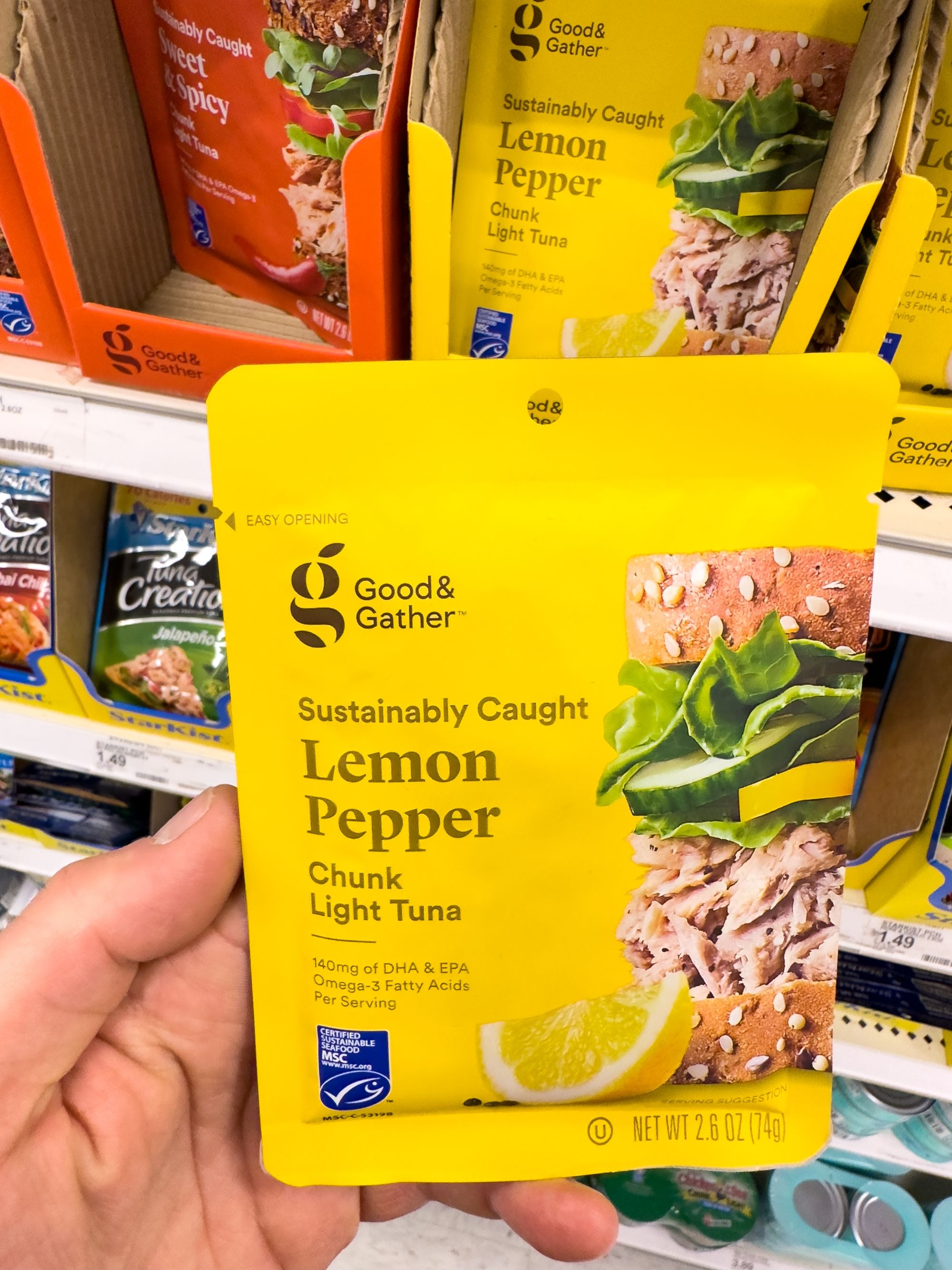
PER CAN: 110 calories, 0.5 g fat (0 g saturated fat), 360 mg sodium, 0 g carbs (0 g fiber, 0 g sugar), 20 g protein
Target's Good & Gather brand now offers sustainably sourced Chunk Light Tuna, recognized by the Marine Sustainability Council (MSC). However, it's important to note that this tuna has higher sodium levels (360mg) compared to other options mentioned.
Avoid These Canned Tuna Options
1)Bumble Bee Solid White Albacore in Vegetable Oil
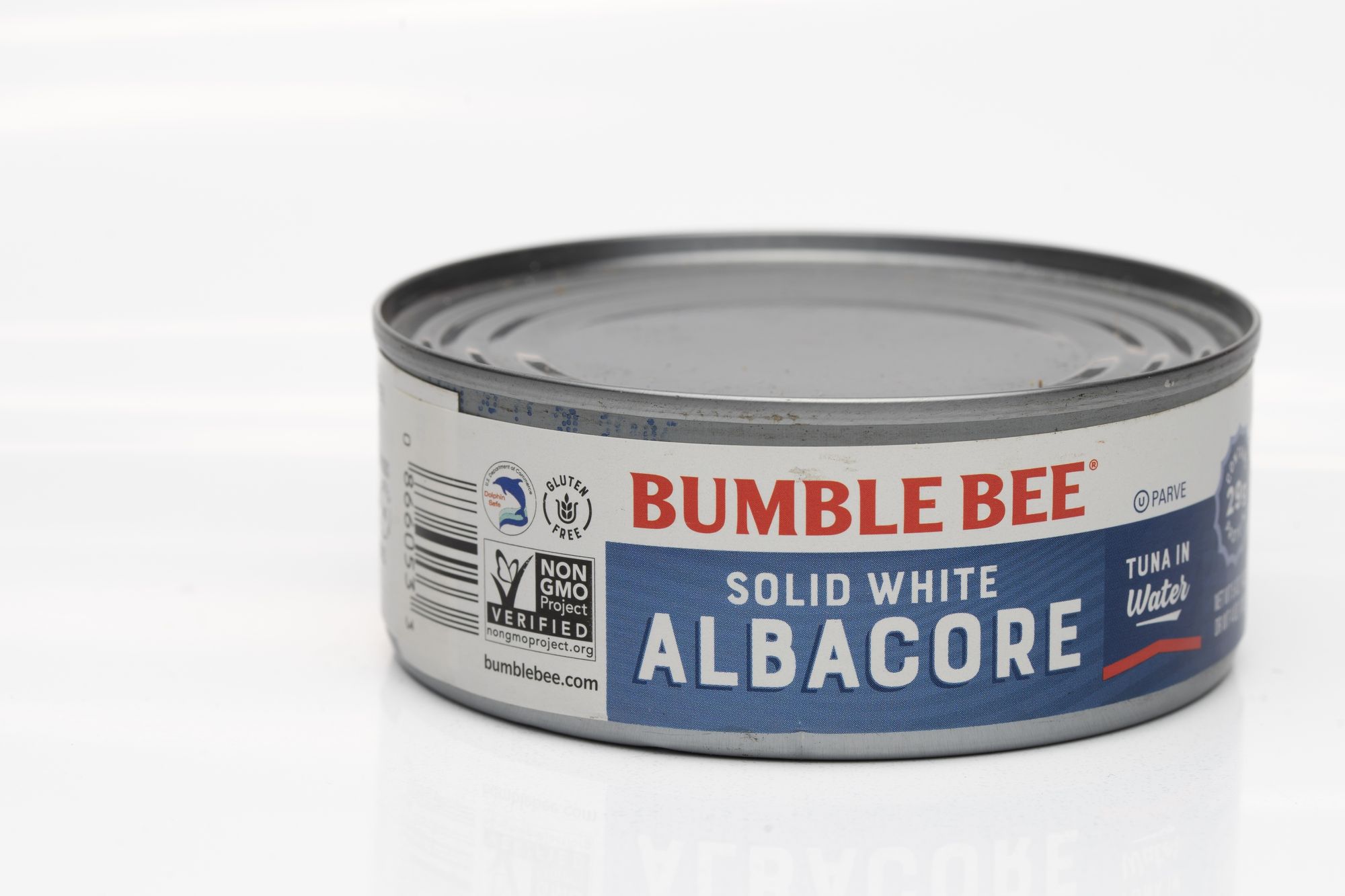
PER CAN: 130 calories, 1 g fat (0.5 g saturated fat), 320 mg sodium, 0 g carbs (0 g fiber, 0 g sugar), 29 g protein
Consumers should exercise caution when considering Bumblebee's claims of responsible fishing practices. Despite the company's assertion of sustainable sourcing, Greenpeace has raised concerns regarding Bumblebee's deceptive practices. It is worth noting that the CEO has a prior conviction for price fixing, and the company has faced allegations of potential human rights and animal rights violations.
In an effort to rectify their reputation, Bumblebee has partnered with the Global Sustainable Seafood Institute with the goal of achieving sustainability certification by 2025. This entails meeting the external standards set by the Institute to demonstrate adherence to the qualities of a sustainable fishery.
2) Kirkland Albacore Solid White Tuna in Water
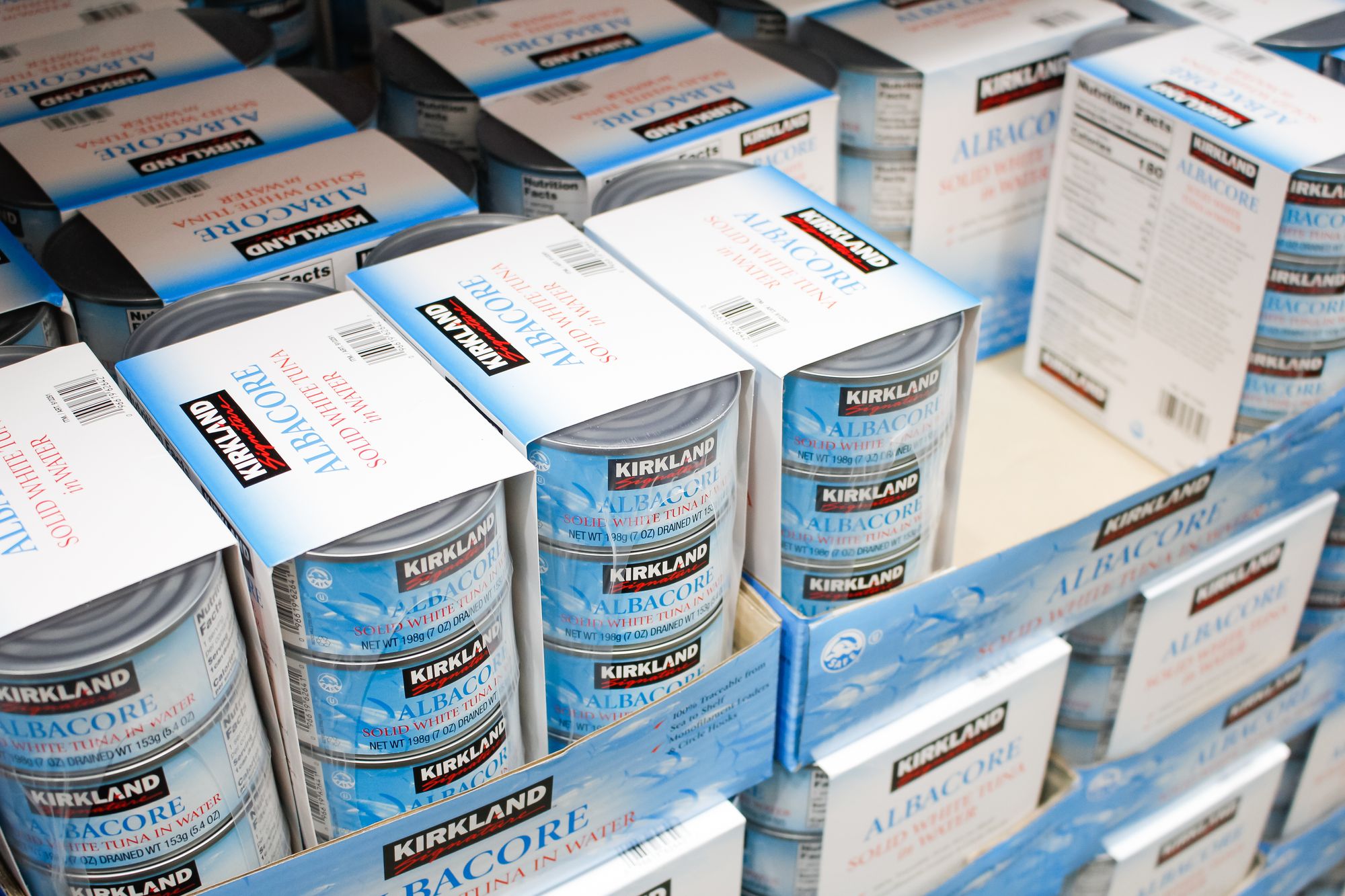
PER CAN: 190 calories, 3 g fat (1 g saturated fat), 340 mg sodium, 0 g carbs (0 g fiber, 0 g sugar), 42 g protein
The tuna brand sold at Costco raises concerns due to its sourcing practices. The albacore tuna used in their products is caught using destructive longline fishing methods, which have significant negative consequences such as bycatch of endangered species. This poses a threat to marine ecosystems and biodiversity.
While Costco previously provided a responsibly caught alternative under its signature brand, unfortunately, it is no longer available for purchase. This change limits the options for environmentally conscious consumers who wish to support sustainable fishing practices.
3) Starkist Chunk Light Tuna
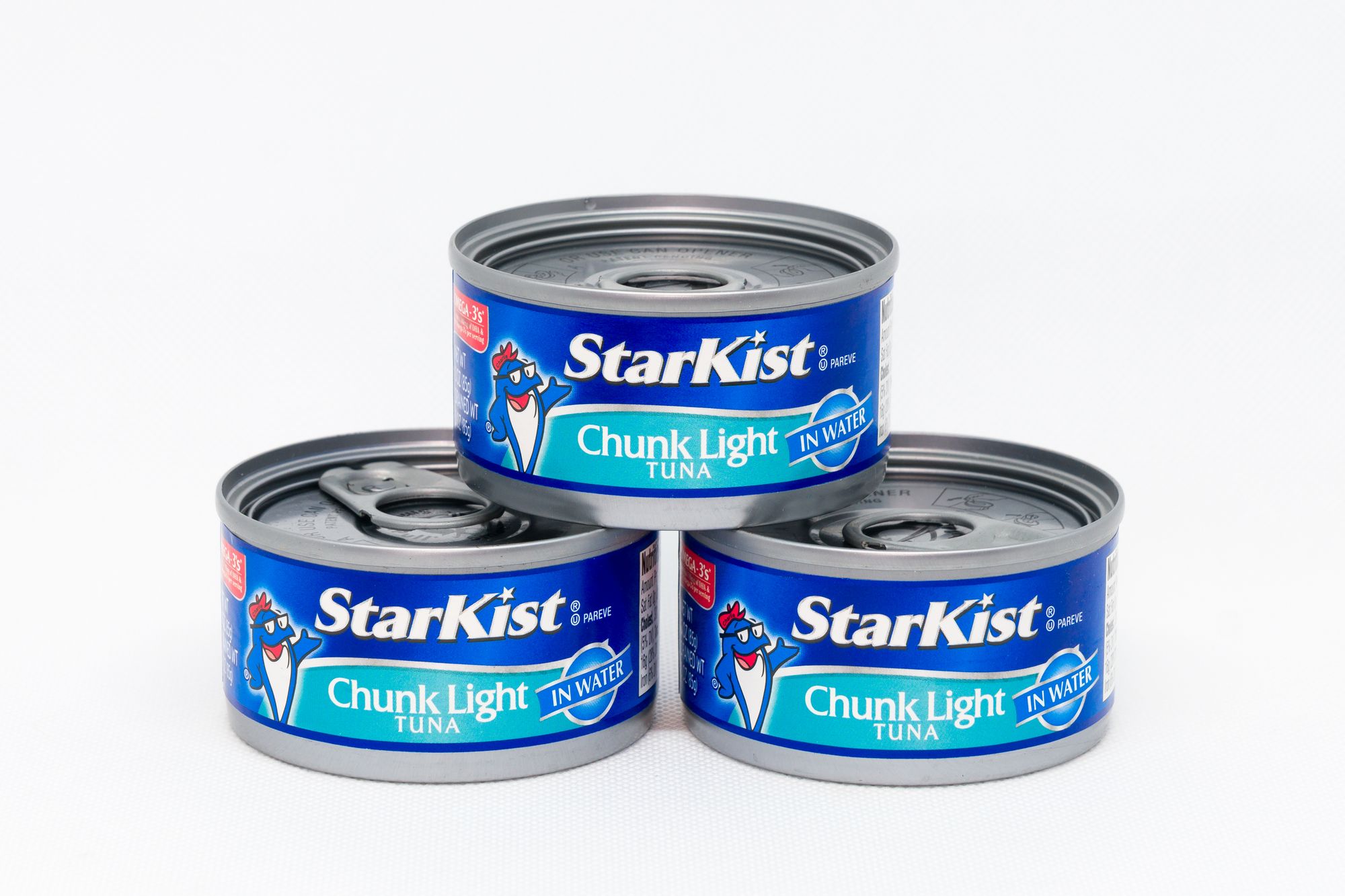
PER CAN: 70 calories, 0.5 g fat (0 g saturated fat), 320 mg sodium, 0 g carbs (0 g fiber, 0 g sugar), 16 g protein
Starkist tuna has come under criticism for several reasons, with sustainability being a primary concern. The brand has been associated with fishing methods such as purse seining (or netting) and longline fishing. These methods have raised alarms due to their potential for significant bycatch and the unintended capture of endangered marine species.
Another area of concern lies in the transparency and traceability of Starkist's supply chain. The brand lacks comprehensive information about their sourcing practices, and they do not hold third-party certifications for sustainable fishing. These factors contribute to doubts about the brand's genuine commitment to sustainability efforts.

